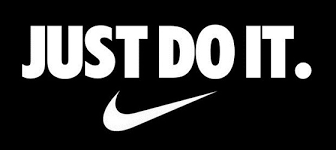By Mark Baber
December 7 – In the wake of last Thursday’s superseding indictment, issued by the US Department of Justice, in the FIFA corruption cases, Sportswear company Nike has once again issued a statement to the effect that it is cooperating fully with authorities and to insist its officials were not aware of any bribery or wrongdoing in connection with the millions the company sent to a Swiss bank account.
Nike is the company referred to as “Sportswear Company A” in the superseding indictment and it has been drawn into the FIFA corruption scandal over its $200 million 1996 deal with the Brazilian Football Federation (CBF) which included a side-deal whereby the company was invoiced by Traffic affiliate Wabern Corp. for $40 million.
The details of the deal are laid out under ‘CBF Sponsorship Scheme’ in the indictment:
“The Brazilian national team won the 1994 World Cup, which was hosted by the United States in June and July of that year. Around the same time, a representative of a multinational sportswear company headquartered in the United States (together with its affiliates, “Sportswear Company A”), the identity of which is known to the Grand Jury, approached CBF to determine whether CBF was interested in being sponsored by Sportswear Company A. At the time, CBF already had a sponsorship agreement with another American sportswear company (“Sportswear Company B”), the identity of which is known to the Grand Jury. Thereafter the defendant RICARDO TEIXEIRA, then the president of CBF, and Jose Hawilla, on behalf of Traffic Brazil, which at the time served as CBF’s marketing agent, began negotiations with representatives of Sportswear Company A. “
Sportswear Company B is Umbro which sponsored the Brazilian national team until Nike took over.
According to the indictment: “The negotiations lasted into 1996. The parties ultimately agreed to a 10-year deal, which required, among other things, that Sportswear Company A compensate Sportswear Company B, which agreed to terminate its existing contract with CBF. As part of the basic agreement, Sportswear Company A agreed to spend $200 million.”
“The parties met in New York, New York for the closing. The sponsorship agreement, dated July 11, 1996, was signed by the defendant RICARDO TEIXEIRA on behalf of CBF, Jose Hawilla on behalf of Traffic Brazil, and four representatives of Sportswear Company A. Among other terms, the contract, a 44- page Sponsorship and Endorsement Agreement (the “Agreement”), required Sportswear Company A to pay CBF $160 million over 10 years for the right to be one of CBF’s co-sponsors and to be CBF’s exclusive footwear, apparel, accessories, and equipment supplier. CBF remitted a percentage of the value of the payments it received under the Agreement to Traffic Brazil.”
Ricardo Teixeira, former Brazilian soccer federation president and FIFA Executive Committee member, is among the 16 defendants who were newly-indicted on Thursday.
The indictment goes on to outline the strange circumstances of the side-deal with Traffic, saying: “Additional financial terms, including the agency fee owed to Traffic, were not reflected in the Agreement. Sportswear Company A agreed to pay a Traffic affiliate with a Swiss bank account an additional $40 million in base compensation on top of the $160 million it was obligated to pay to CBF pursuant to the Agreement. At the closing, a representative of Sportswear Company A and a representative of Traffic Brazil (Jose Hawilla) signed a one-page letter agreement dated July 14, 1996 acknowledging as follows: “CBF has authorized Traffic, or its designated banking agent, to invoice [Sportswear Company A] directly for marketing fees earned upon successful negotiation and performance of the [Agreement].”
“Between 1996 and 1999, Wabern Corp. (“Wabern”), the Traffic affiliate with the Swiss bank account, invoiced Sportswear Company A directly for $40 million in payments. Sportswear Company A – including the U.S. parent company itself -made the payments to Wabern’s account in Switzerland.”
The obviously corrupt element of the whole deal, of which Nike claims ignorance, is that, according to the indictment, “Jose Hawilla agreed to pay and did pay the defendant RICARDO TEIXEIRA half of the money he made from the sponsorship deal, totalling in the millions of dollars, as a bribe and kickback. “
Hawilla pleaded guilty on 12 December 2014 to “corruption charges including racketeering, wire fraud and money laundering.”
The final aspect of the deal, mentioned in the indictment, is that: “On or about January 25, 2002, the parties agreed to terminate the Agreement before the end of the 10-year term, ending any further obligations thereunder between Sportswear Company A and CBF, and between Sportswear Company A and Traffic Brazil.”
Late on Thursday evening, following the issuing of the superseding indictment, Nike issued a new statement saying, “There is no allegation in the charging documents that any Nike employee was aware of or knowingly participated in any bribery or kickback scheme. Nike believes in ethical and fair play in both business and sport and strongly opposes any form of manipulation or bribery.”
It remains to be seen whether US prosecutors will reveal more details of why Nike entered into what have been described as “strange” arrangements with Traffic and the CBF and exactly what lies behind their obfuscation of Nike’s role, when other companies somehow caught up in the scandal, such as Toyota Motor Corporation and Grupo Santander are mentioned by name.
Nike’s defence will presumably be that the $40 million paid to Traffic will be commission of some form, though commission would usually be collected from the rights holder (in this case the CBF) by the sales agency (in this case a fee of 20%).
Contact the writer of this story at moc.l1734877600labto1734877600ofdlr1734877600owedi1734877600sni@n1734877600osloh1734877600cin.l1734877600uap1734877600

